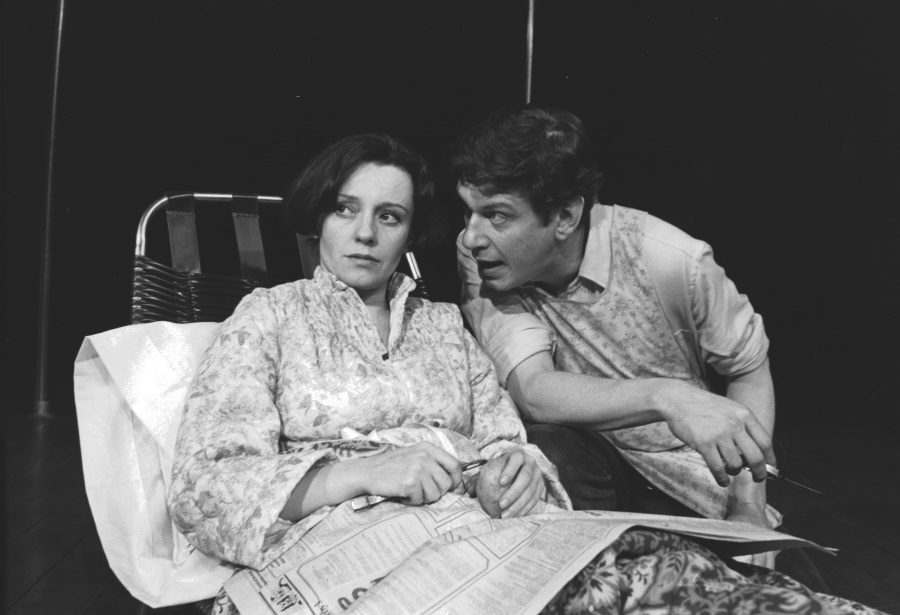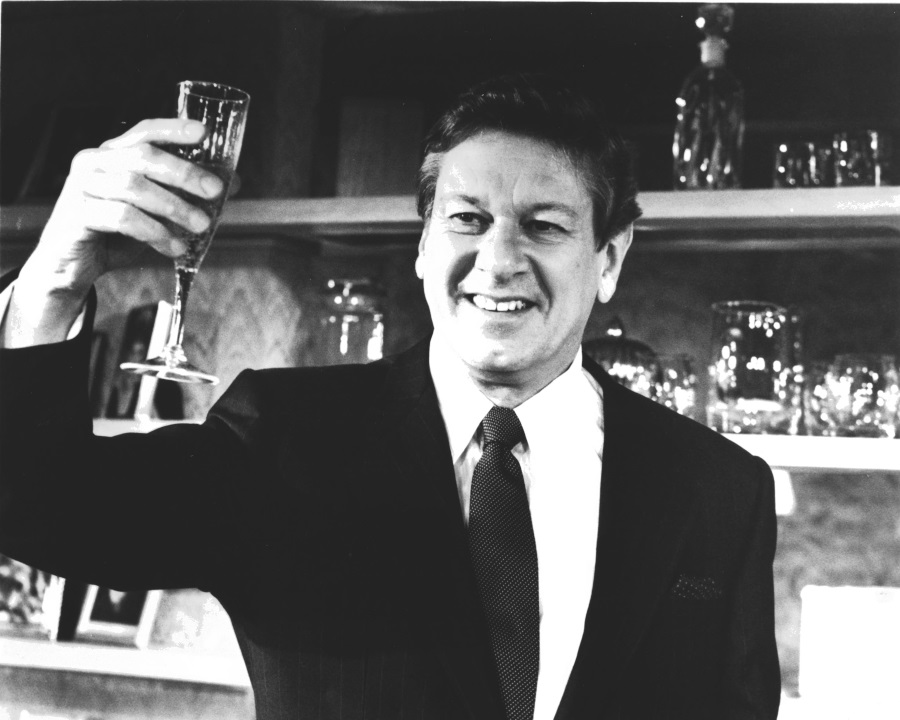In 1976, a few seasons into what would become my long tenure as artistic director of Manhattan Theatre Club, I received a call one day from Brian Murray’s agent, Clifford Stevens. Clifford had heard that I was interested in directing a daring new British play by David Rudkin called Ashes, about a couple trying to have baby. Brian Murray wanted to play the leading role of Colin, an infertile Northern Irishman desperate to conceive with his British wife.
It was one of the best plays I had read and one of the best phone calls I would ever receive. Brian Murray’s entrance into my world and my career remains one of the most wonderful and significant events of my life.
I was thrilled and slightly overwhelmed by the possibility and opportunity of getting to work with Brian. He was known at that time as the actor who created the role of Rosencrantz in Tom Stoppard’s Rosencrantz and Guildenstern Are Dead on Broadway, he had worked with Peter Brook in London, and was the one of the young stars of the Royal Shakespeare Company. Roberta Maxwell, who would play his wife in Ashes, had quite an impressive résumé as well. So I gave Clifford an immediate, “Yes! I would absolutely love to do this.”
There was just one problem, which I did not share with Clifford then: I didn’t have the rights to do the play! And since Manhattan Theatre Club was a fledgling organization, only a couple of years old at the time, no one in London had a clue who we were.
I called David Rudkin’s agent, who refused to entertain my request for the rights and politely hung up. But I had told Brian Murray and Roberta Maxwell that that we would definitely do the show! I was desperate.
After a few more determined but hopeless phone calls to London, I decided to call Joe Papp, whom I had briefly met, to ask if he could help me. Joe agreed to read the play and called me the next day, saying, “I read the first act—tell the agent whatever you need to to get the rights.”
So I called again, and before Rudkin’s rep could hang up on me I managed to quickly interject that “Joseph Papp of the Public Theater wants to co-produce the play at the Manhattan Theatre Club with me directing and with Brian Murray playing the leading role!”
I didn’t have to disappoint Brian! I got the rights.

Creating that production with Brian and Roberta—also with John Tillinger and Penelope Allen, with a set designed by John Lee Beatty—was a thrilling experience for all of us, and for me working with Brian was an early and defining introduction to the greatness of actors.
The production turned out to be a triumph of the 1976-’77 season. Joe moved the show downtown to the Public after its very successful run at MTC on 73rd Street, and that spring we were showered with awards, including—of course—Brian, who was singled out for his extraordinary performance.
Brian was a powerful force, both onstage and off. His character in Ashes was tortured, brilliant, contemplative, funny, and drôle. The final scene was a dense, complicated, beautifully written four-page monologue—Colin talking to his wife while driving through Northern Ireland. And Brian’s performance was nothing short of virtuosic—Mel Gussow, in his review for The New York Times, wrote that Brian “touches us with his helplessness at the same time that he is amusing us with his absurdity,” and Clive Barnes called Brian’s performance “superb.”
Brian was so much more experienced than I was at the time, and yet we collaborated and created together as peers, thanks to his graciousness and his generous spirit.
We would go on to do two more shows together. In 1979, I asked him to do the American premiere of The Jail Diary of Albie Sachs by David Edgar, based on a true story, which was set in Cape Town, South Africa. Brian played the role of Sachs, an activist and former judge on the Constitutional Court of South Africa, who was arrested and put in solitary confinement for almost six months without being told why. It was another tour de force role, and Brian was once again brilliant. He, like the leading character, had been born in South Africa, so the piece had a great personal meaning for him, which translated to his portrayal of Sachs. In his New York Magazine review, John Simon wrote that Brian’s “complex, munificent, subtly chiseled yet ultimately towering…performance alone makes the play a must-see.”
Then in 1992, Brian and I worked together on the American premiere of Alan Ayckbourn‘s brilliant, funny, and terrifying play A Small Family Business. Brian played the role of Jack, the lead character, a man with impeccable moral standards who unwittingly becomes embroiled in a series of mafia schemes that conclude with him murdering someone in a bathroom to protect his family. Frank Rich called Brian’s performance “the finest of the evening” in his review for The New York Times.
Brian was a true treasure of the American theatre. He described to me his reaction when he arrived or the first time in New York City: “I felt as if I had come home.”
What great luck that he stayed in New York for the many artists who got to work with him throughout his distinguished career, and for all the audiences who got to see his great talent, both as an actor and as a director.
For my part, I adored him and respected him and was so grateful that I got to know him—and that I got to meet his mom, Molly, who was so important to him. I treasured him for his talent and for his generosity and kindness to me. And I will be forever grateful for the many things he taught me about acting and about artistic integrity.
Brian gravitated toward working on major plays by some of the greatest contemporary writers, including the aforementioned writers as well as David Hare, Michael Frayn, Edward Albee, and Peter Shaffer. He was a master of the classics as well.
He turned down many offers in favor of doing what had the most meaning or significance for him; in so doing, he created great memories for the multitude of audiences who saw him—people who, like Brian, cherished the theatre and who treasured him as one of our great actors.
Lynne Meadow is the artistic director of Manhattan Theatre Club.


